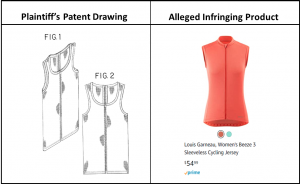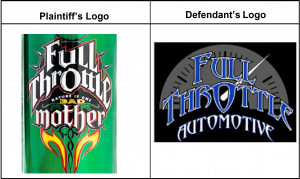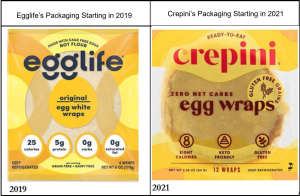| Patent No. |
Title |
| D0926,292 |
Faucet |
| D0926,291 |
Faucet |
| D0926,144 |
Contact |
| D0926,104 |
Wheel chock |
| D0926,078 |
Buckle system |
| D0926,018 |
Knob |
| D0925,933 |
Banquette |
| 11,074,802 |
Method and apparatus for automatic event prediction |
| 11,074,674 |
Imaging noise reduction system and method |
| 11,073,322 |
Modular heat transfer system |
| 11,073,200 |
Embedded auxiliary oil system for gearbox protection |
| 11,073,083 |
Particle separator |
| 11,073,045 |
Turbine shroud assembly with case captured seal segment carrier |
| 11,073,026 |
Turbine shroud assembly with multi-piece support for ceramic matrix composite material seal segments |
| 11,072,162 |
Methods and apparatus for compensating for thermal expansion during additive manufacturing |
| 11,072,096 |
Apparatuses and methods to mold complex shapes |
| 11,071,831 |
Dose detection system module for medication delivery device |
| 11,071,819 |
Valve drive unit with shape memory alloy actuator |
| 11,071,666 |
Systems, methods, and devices for treatment of sleep disorders |
| 11,071,636 |
Thoracic aorta stent graft with access region |
| 11,071,535 |
Vascular anchoring introducer sheath |
| 11,071,521 |
Internal ultrasound assembly with port for fluid injection |
| 11,071,454 |
Identification of device location in healthcare facility |
| 11,071,393 |
Apparatus for adding hospital bed functionality to an at-home bed |
| D0925,517 |
Communication console |
| D0925,306 |
Mattock tool |
| 11,071,201 |
Method and apparatus for terminating an electrical cable to an integrated circuit |
| 11,070,943 |
Systems and methods for identifying parties based on coordinating identifiers |
| 11,070,290 |
System and method for using a solar cell in wireless communication |
| 11,068,403 |
Data processing system for prefetching data to buffer entries and operating method of the data processing system |
| 11,067,588 |
Medical analyte testing system and operating method therefor |
| 11,067,509 |
Fluorescent microscope |
| 11,067,029 |
Systems and methods for coupling a cylinder head to a cylinder block |
| 11,067,015 |
Systems and methods for cylinder deactivation operation in response to route conditions |
| 11,067,014 |
System and method for reducing engine knock |
| 11,067,006 |
Gas turbine engine system with synchronization features for gearbox operation |
| 11,066,973 |
Heating system for a tank header of aftertreatment system and method of heating a tank header |
| 11,066,947 |
Turbine shroud assembly with sealed pin mounting arrangement |
| 11,066,849 |
Adjustable decorative lockset rose assembly |
| 11,066,460 |
Phage display vectors and methods of use |
| 11,066,386 |
CGRP receptor antagonists |
| 11,066,256 |
Grain bin powersweep with sump shaft aperture sealing cover plate assembly |
| 11,066,249 |
Loading table roller brush assembly |
| 11,066,247 |
Powersweep including gearbox shifter mechanism |
| 11,066,051 |
Wheel sensors within vehicular brake assemblies |
| 11,065,808 |
Methods and apparatus for compressing material during additive manufacturing |
| 11,065,391 |
Automatic injection device with variable dosing |
| 11,065,386 |
Automatic medication injection device with audible indication of injecting progress |
| 11,065,368 |
Drug eluting graft constructs and methods |
| 11,065,216 |
Compositions and methods for regulating body weight and metabolic syndromes |
| 11,065,130 |
Expandable spinal implant system and method of using same |
| 11,065,123 |
Compression resistant implants including an oxysterol and methods of use |
| 11,065,103 |
Method and apparatus for fixation of an ACL graft |
| 11,065,065 |
Spinal implant system and methods of use |
| 11,064,987 |
Volumetric grafts for treatment of fistulae and related methods and systems |
| 11,064,822 |
Snap together frame |
| RE048,635 |
ERK inhibitors |
| D0925,160 |
Cremation urn |
| D0925,032 |
Component for a drug delivery device |
| D0925,014 |
Handshower holder |
| D0925,008 |
Faucet handle |
| D0925,007 |
Faucet |
| D0924,983 |
Children’s ride-on vehicle |
| 11,063,445 |
Multi-cell battery management device |
| 11,062,707 |
Voice recognition for patient care environment |
| 11,062,541 |
Automated architectural specification generation and hardware identification |
| 11,061,482 |
Force sensitive input devices and methods |
| 11,061,035 |
Charged mass labeling system |
| 11,060,998 |
Nonlinear mass sensors based on electronic feedback |
| 11,060,978 |
Methods of determining an analyte concentration in a body fluid sample having disturbance variables, as well as computer programs and devices therefor |
| 11,060,959 |
Systems and methods for analyzing an analyte extracted from a sample using an adsorbent material |
| 11,060,939 |
Diagnosing cylinder pressure sensor gain and offset |
| 11,060,578 |
Conical spring washer, transmission system, and method of assembly thereof |
| 11,060,468 |
Engine intake air system including CAC bypass and separate bypass heater, and high-efficiency spark-ignited direct injection liquid propane engine architectures including same |
| 11,060,451 |
Fuel injector cleaning system, fluid, and method |
| 11,060,434 |
Reductant injection in exhaust manifold |
| 11,060,004 |
Adhesives and methods of making the same |
| 11,059,504 |
Technologies for caddy assemblies |
| 11,059,416 |
Electrochromic adaptive driving beam system and method |
| 11,059,413 |
Retractable room actuation assembly for recreational vehicle |
| 11,059,369 |
Diesel exhaust fluid tank venting system |
| 11,059,359 |
Tonneau cover tie-down assembly |
| 11,059,259 |
Composite core with reinforced plastic strips and method thereof |
| 11,059,227 |
Print head for additive manufacturing |
| 11,058,976 |
Valve-sensor assembly |
| 11,058,805 |
Compositions and devices incorporating water-insoluble therapeutic agents and methods of the use thereof |
| 11,058,554 |
Hard bearing inserter rings |
| 11,058,495 |
Surgical system having assisted optical navigation with dual projection system |
| 11,058,464 |
Interspinous process fixation devices, systems, instruments and methods of assembly and use |
| 11,058,368 |
Distributed healthcare communication system |
| 11,058,108 |
Stable high strength oil-in-water emulsions |
| 11,058,092 |
Animal crate with swing or drop door |
| 11,058,089 |
Soybean variety 5PVSQ69 |
| 11,058,055 |
Airflow for an agricultural harvesting combine |
| D0924,441 |
Beam |
| D0924,392 |
Component of a drug delivery device |
| D0924,391 |
Component for a drug delivery device |
| D0924,378 |
Non-return device valve member |
| D0924,371 |
Faucet |
| D0924,370 |
Faucet |
| D0924,366 |
Faucet |
| D0924,365 |
Faucet body |
| D0924,364 |
Faucet |
| D0924,358 |
Faucet sprayhead |
| D0924,170 |
Electrical connector |
| D0924,169 |
Electrical connector |
| D0924,035 |
Knob |
| D0923,965 |
Towel bar |
| 11,057,722 |
Hearing aid for people having asymmetric hearing loss |
| 11,057,240 |
Method and process for securing an executable image |
| 11,056,838 |
Transceiver receptacle with EMI cage and bezel clips that provide high shielding effectiveness |
| 11,056,329 |
ESI-MS via an electrokinetically pumped interface |
| 11,055,386 |
Controlling user access to a medical system |
| 11,054,318 |
System for nondestructive residual stress profiling using inductive sensing |
| 11,054,114 |
Illuminating, spinning device |
| 11,054,039 |
Seal runner support |
| 11,053,962 |
Method and apparatus of plasma flow control for drag reduction |
| 11,053,881 |
Hierarchical engine control systems and methods |
| 11,053,830 |
Mixer for NOx sensor |
| 11,053,828 |
Separately determining firing density and pumping density during firing density transitions for a lean-burn internal combustion engine |
| 11,053,817 |
Turbine shroud assembly with ceramic matrix composite blade track segments and full hoop carrier |
| 11,053,806 |
Brazed blade track for a gas turbine engine |
| 11,053,801 |
Gas turbine engine composite vane assembly and method for making the same |
| 11,053,646 |
Helicopter and VTOL aircraft landing pad information sheet |
| 11,053,578 |
Removing coatings from ceramic matrix composite substrates |
| 11,053,544 |
Corn event DAS-59122-7 and methods for detection thereof |
| 11,053,511 |
Production of DHA and other LC PUFAs in plants |
| 11,053,290 |
Modified Tamm-Horsfall protein and related compositions and methods of use |
| 11,053,214 |
Compositions and methods related to pyridinoylpiperidine 5-HT.sub.1F agonists |
| 11,053,003 |
Cyclorotor thrust control, transmission and mounting system |
| 11,052,878 |
Manually-operable hydraulic stabilizing system |
| 11,052,192 |
Disposable inserter and reusable inserter for accommodating a disposable inserter |
| 11,052,153 |
Highly branched alpha-D-glucans |
| 11,052,009 |
Device for adjustably supporting portions of a patient for surgery |
| 11,052,008 |
Surgical frame and method for use thereof facilitating patient transfer |
| 11,051,961 |
Deployment handle with stabilizing rail for a pre-loaded prosthesis delivery device |
| 11,051,899 |
Surgical draping system and method |
| 11,051,865 |
Fixation of bone implants |
| 11,051,859 |
Spinal correction system and method |
| 11,051,854 |
Spinal implant system and method |
| 11,051,770 |
Patient positioning support structure |










